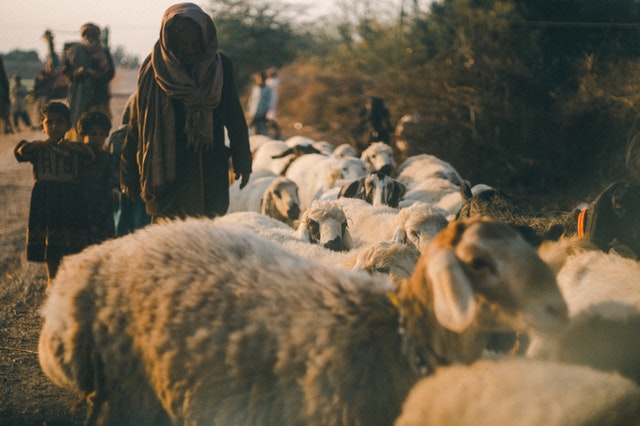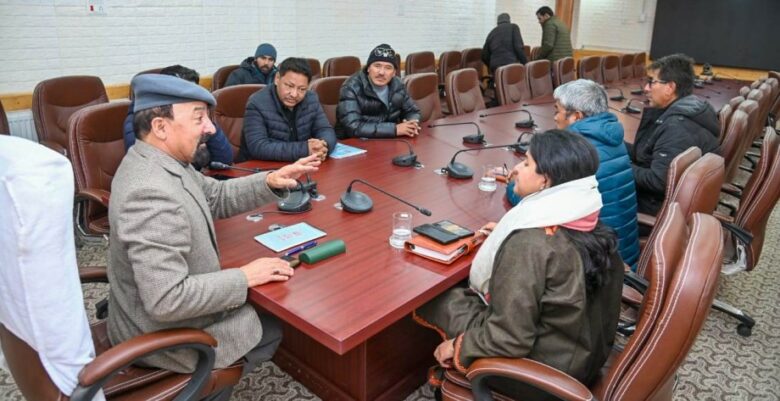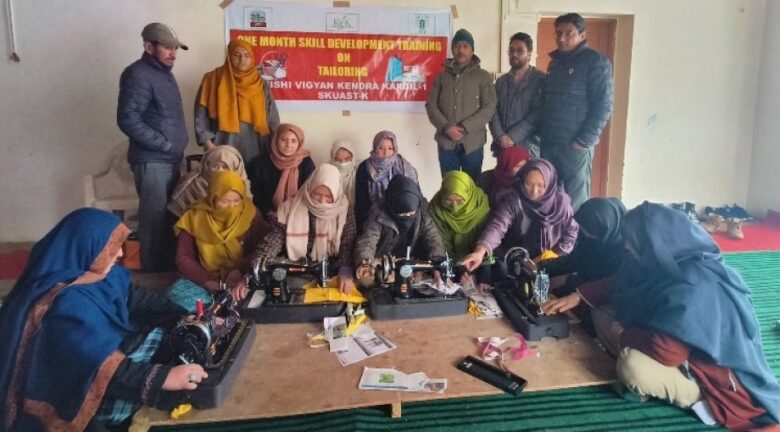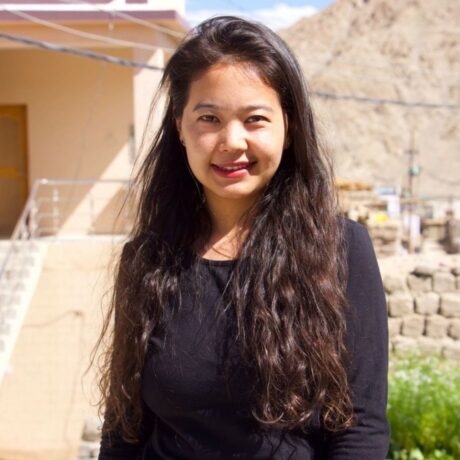
Caste-based inequality in Ladakh is a serious issue and can’t be neglected. The caste system exist before the flourishing of Buddhism in India and it came to Ladakh with people who came from Himachal, Tibet, and Gilgit known as Mon, Sogpa, and Dard respectively. For example; Surna players came along with Gyal Khatoon from Skardo-Gilgit. It seems that they being an outsider, locals did little discrimination with them and termed them inferior. In this way, casteism originated in Ladakh which is socially created and driven. Buddhism does not believe in casteism, rather it preaches welfare of all sentient beings without any selfish motive.
Water from Ganga, Yamuna, Indus, and Brahmaputra are valued and might have different importance but it’s just water after mixing with the ocean. Because once it’s merged in an ocean we cannot separate or identify the water from Ganga, Yamuna, and Brahmaputra. Similarly, once a person becomes a follower of Buddha he /she is only a human being, and it doesn’t matter which caste or creed the person belongs to. Let’s understand it through a story, “Seven princes visited a barber for hair cutting. The barber asked the princes that why they are cutting their hair since they are royals. The princes replied that they are going to become disciples of Buddha. Hearing them out the barber also thought of becoming a disciple of Buddha-like the princes. He at once chopped his hair and reached before Buddha. The princes reached later than the barber and had to take prostration of the barber since he came before them and was senior. The moral of the story is that once you become a follower of Buddha, caste and creed do not matter.”
Caste practice is not in Buddhism and it becomes easier to make people understand to abandon such evil practices through education. Education liberates the mind from ignorance, narrow thinking, superstitions, and prejudices. Hence through education, it will become easy to convince people to uproot such practices since it does not exist in our religion. Dr. Bhim Rao Ambedkar becoming a Buddhist is a strong message for us. We need to understand why he decided to be a follower of Buddha at the last moment of his life? Because he did know that there is a caste system in this religion.
Unfortunately, the caste system is practiced in our society. The situation has somehow improved now as compared to earlier times. Today we all sit and eat together, which is a good sign. His Holiness gesture of embracing, playing the musical instruments, and teaching to condemn the caste system has somehow brought a wave of change over the few years. The practice of not allowing them to eat and drink from the same utensils providing separate cups and glasses at the village gatherings or ceremonies is improved.
Youths of today are neither believing nor caring about caste system and I think it is their responsibility to end the system. Eating and sitting together has become normal though inter-caste marriage is still a challenge in front of us, I am sure with time it will be normal. For this, we need to educate our young generation.
At village levels, we have women and youth associations who can play a very important role in eradicating the system. My teacher has instilled in me that casteism does not exist in Buddhism at my early stage of life, therefore such small thought never comes to my mind. Thus, educating the children about such evil practices at a very young age is necessary. Media can also play a crucial role in creating awareness among the people. It is true that in a society there exist some sort of issues and no society can be completely devoid of discrimination. Still, our effort must be to reduce the differences at the best level.
Padma Shri Awardee, Morup Namgyal: Several discussions and seminars under the banner of Ladakh Buddhist Association (LBA) have been organised and are creating awareness among the people regarding casteism wherever we go. The situation has improved a lot and we are observing the huge change in society, though the system is still practiced in our society.
Buddha had rejected the system centuries ago and said that no disciple of him can practice it. Then how can we call ourselves a Buddhist if we practice it? Even His Holiness (HH) the 14th Dalai Lama has time and again advised us not to practice the system, and he has played Daman and had a meal with the people whom we consider lower than us. There is no higher teacher than him and if His Holiness is rejecting the system then we need to introspect.
Recently LBA has formed a committee to look after such issues in our society and I got the opportunity to serve the committee as President. We are working on 13 points of which casteism is one of them. Along with cultural preservation, we are educating people at the village level to avoid practicing the caste system in Ladakh. We often feel proud of our rich culture, but always forget to recognize the contribution of Daman and Surna players. If they have preserved and promoted our culture through their art, then how can they be inferior they are skilled and educated. Imagine our society without Surna and Daman, without Lharnga our festivals and occasions are incomplete. Let’s use our intelligence and imagine their importance and contributions.
“Ali Meer Shah Khan, King of Gilgit once sent around 60 people to Kashmir to learn the art. Later they got back to Gilgit and decided to sit at the bottom of the line so that everyone could enjoy music and dance, which later, unfortunately, took the shape of casteism. And during the reign of Jamyang Gyalson, along with Gyal Khatoon many such instrument artists came to Ladakh and the same practice began here.”
We need to remember that it is the century of science and people talk about visiting the Moon and exploring space, can we afford to still engage in such practices, if we continue then we will never grow and develop. On behalf of LBA, I would like to request each soul of Ladakh to avoid practicing the system. Unfortunately, good traditions are vanishing from our society, but bad tradition like casteism still has a good grab in our society. If one still has doubt and practice casteism then it shows one’s narrow-mindedness. There is a saying, “Doubt creates Demon.”
I would like to request the parents of the victims to give education to their children and let them be like Ambedkar. Make them leaders and tycoons, such a system will automatically uprooted from society. At our level we have decided to call Tashis Pa instead of Mon, Sonampa/Serzopa instead of Garba, as we call Luyangs pa for singers and it is a good sign that few villages have started implementing it. In this way, our coming generation will never question the system. It is also fortunate that nowadays we are observing sitting arrangements according to seniority (age-wise) during gatherings and occasions. Sooner or later we will also witness marriage relations. Ladakh is a land of Buddha, if a foreigner learns about such evil practices then it will send a negative message to them.
As a society, we need to understand that our enemy will always try to take advantage of weaknesses and lapses in our society, therefore maintaining equality and unity is necessary. It is my humble appeal to the people of Ladakh to follow the teachings of Buddha and His Holiness and implement it in their life and must do an effort to uproot the system at an individual level.


